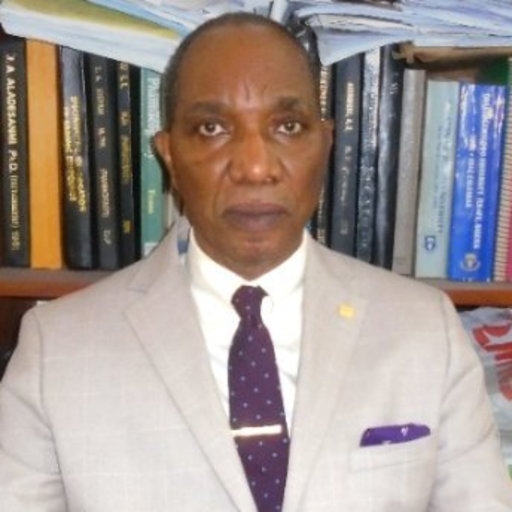A Professor of Pharmacognosy at Obafemi Awolowo University, Joseph Aladesanmi, who invented a yet to be clinically tested anti-cancer drug, has decried poor funding of research in Nigeria.
About five months ago, Mr Aladesanmi received a patent for ‘acuminatoside’, a new drug believed to work against prostate, breast, cervical, and pancreatic cancers.
The patent was provided by the federal ministry of science and technology through the Obafemi Awolowo University branch of the Intellectual Property and Technology Transfer Office (IPTTO).
The drug is yet to undergo clinical trials. It will undergo the trials and, if successful, processed into tablets before it is presented to the National Agency For Food/Drugs Administration and Control (NAFDAC) for approval, the professor said.
In an exclusive interview with PREMIUM TIMES, the professor narrated how he has funded his researches with his own money since he started his career as a scientist.
“For so many of my Master students, I’m the one funding their researches and experiments,” he said. “I’ve been dedicated to academics since 1982.”
He said when the patent on his invention was issued, the Vice-Chancellor of the university, Eyitope Ogunbodede, in his congratulatory message, promised reimbursement of his expenses on the invention.
“When the patent was issued, I was summoned by the university, they promised to publicise and do the presentation in the presence of the principal officers of the university. The VC promised that I should be reimbursed. After all, I will use the funds to buy materials for other researches.
“Three months ago, I was contacted to do the financial implications and send to the Centre for Research, which I did on the 10th of July but I have not gotten any response,” he said.
Mr Aladesanmi officially retired on May 23 but has not been paid for the contract service he has since rendered at the school.
“The Vice-Chancellor told me that I could not leave because of my contributions. I was given a peanut in May when I retired. I was given N53,000 as the salary for the month. Up till now, I’ve not been paid any dime since then. How will I eat and survive?”
On how he raised the money spent to fund his invention, Mr. Aladesanmi said during vacations, he travelled abroad to conduct analysis based on the samples of his experiments in Nigeria and he got paid for the analysis afterwards
“It’s when I go overseas to analyse some of the samples that I make money to survive,” he said.
The professor also commented on poor attention given to education in Nigeria and the slow and unyielding response to several applications for funding of his researches.
” I was told to apply for the Tertiary Education Trust Fund (TETFUND) but was later informed that my research can only be sponsored if the government runs adverts. That adverts come only once in a year if the government has not siphoned the funds meant for it.”
As contained in a document made available to PREMIUM TIMES, the cost of his proposal for a research on an anti-malaria compound, is N2 million; but this has not been approved by government.
“Nigeria is the US of Africa but the ways smaller countries like Botswana fund research are better than Nigeria. If I take this idea abroad, it will be stolen,” he said.
While speaking on the professor’s efforts, the Director of IPTTO at the university, Mathew Ilori, said Mr Aladesanmi should not be made to spend own money on such research.
“He used his money to patent his intention which ought not to be so,” Mr Ilori said through his spokesperson, Gbenga Adewinle.
He said financial constraints is, however, not the only limitation to quality research in Nigeria.
He said isolating the financial constraints “is like plucking a leaf from the tree.”
“If we are talking about funding alone, what happens to ownership, commercialization, promotion?”
He said the first thing to do is ensure that portfolios are robust and that existing laws on intellectual property (IP) are well implemented.
“As it stands, we do not have IP policies as a nation. There are IP laws but they lack implementation. The IP talks about the owner of the patent. Is it the government’s, inventor’s, the university’s or is it shared?”
The director said there should be a unit monitoring allocation of funds disbursed by government for research, describing the funding issue as a nationwide challenge and not only in the universities.
“So many countries have gone far in this aspect whereas we are yet to start in Nigeria. If our government can be so conscious of IP it will be better.”
The federal government established the Intellectual Property and Technology Transfer Offices in 38 tertiary and research institutions across Nigeria.




